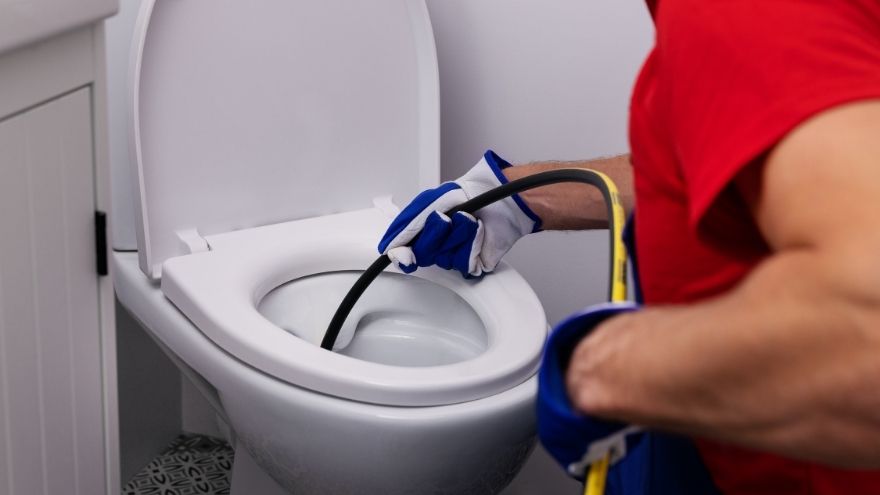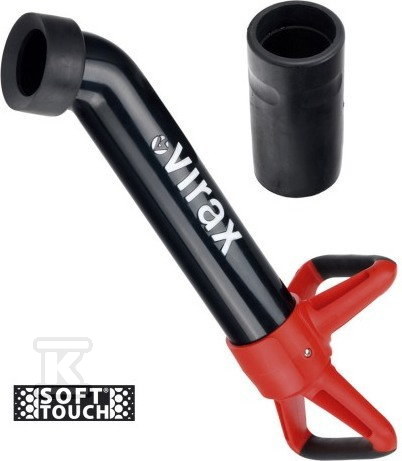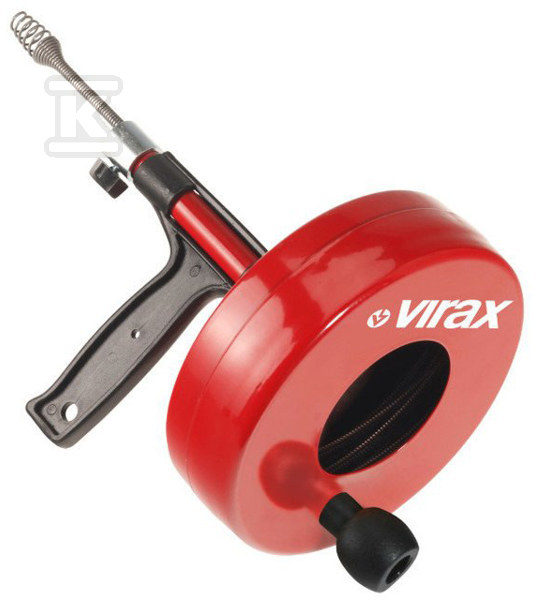Sewer cleaning is not one of the most pleasant tasks, but it is necessary when the pipes are clogged and the entire sewage system is no longer efficient. This is a big problem that can lead to unpleasant odors and even flooding of the rooms. To effectively deal with these difficulties, we must first know the causes of blockages, and then learn how to safely and effectively clean the pipes. There are several proven methods that can help unclog clogged installations. Prevention is also extremely important to avoid repeated complications. In the following article, we will present how to properly prepare for sewage cleaning.

Check out the plungers at the Onninen wholesaler
Causes of blockages in the sewage system
Sewer blockages can occur for a variety of reasons, so understanding how they happen is key to effectively solving the problem. A very common cause is the accumulation of contaminants in the pipes, such as fats, oils, and food residues. These substances harden, creating blockages that are difficult to remove. Another cause is the accumulation of soap scum. After some time, they combine with other contaminants, which in turn leads to the formation of so-called sewer scale. Sewers can also be clogged by hair, paper scraps, or other objects that accidentally end up in the pipes.
 But that's not all, because other factors can also contribute to the blockage, such as improper installation, including the incorrectly selected slope of the sewage pipes, which is why the installation technique always matters. This is because pipes that do not have the right slope are not able to drain water with the right force. And this is a simple way for contaminants to accumulate in such critical places.
But that's not all, because other factors can also contribute to the blockage, such as improper installation, including the incorrectly selected slope of the sewage pipes, which is why the installation technique always matters. This is because pipes that do not have the right slope are not able to drain water with the right force. And this is a simple way for contaminants to accumulate in such critical places.
As we can see, there can be many causes, and understanding the causes of blockage is the first important step to preventing and effectively dealing with this problem. Knowing what exactly is blocking the pipes, we can take appropriate actions. They will prevent larger complications, and therefore costly repairs.
How to properly unclog clogged pipes? Proven methods
Regardless of the causes, a blocked sewage pipe requires key actions - unblocking and cleaning. It is essential to use the right tools and methods. If the blockage is small, usually satisfactory results can be achieved with the use of a plunger, i.e. a rubber plunger. This simple tool works on the principle of generating pressure, which helps to break up and move accumulated dirt. However, to increase the effectiveness of unblocking pipes in this way, it is worth first flooding the drain with hot water. This will help dissolve fats.
 Another helpful solution for unclogging pipes is to use a sewer spiral. This is a flexible tool that allows you to mechanically remove the blockage from the inside of the pipe. Simply insert it into the clogged pipe and then rotate it, which will gradually start to remove the dirt. This method is perfect for use when there are deeper blockages, especially where a traditional plunger is not able to clean the sewer.
Another helpful solution for unclogging pipes is to use a sewer spiral. This is a flexible tool that allows you to mechanically remove the blockage from the inside of the pipe. Simply insert it into the clogged pipe and then rotate it, which will gradually start to remove the dirt. This method is perfect for use when there are deeper blockages, especially where a traditional plunger is not able to clean the sewer.
There are also situations where the above methods are insufficient, so it is necessary to use chemical cleaning agents, such as preparations based on acids or sodium hydroxide. Unclogging the pipes in this case should be successful, because these agents, acting strongly, react with impurities. As a result, they dissolve them, facilitating the flow of water. Remember, however, that they cannot always be used, because these chemicals can be aggressive to some types of pipes, leading to damage (for example, some plastic installations ). If so, always use them in moderation.
It may also be that the problem is much more complex, and the blockage affects a larger part of the sewage system. In such a situation, it is worth calling in professionals to clean the pipes. They have specialist equipment, such as high-pressure sewage cleaning devices.
Prevention, or what to do to prevent pipes from getting clogged?
Cleaning and unclogging pipes are often tasks we are condemned to do. However, with proper prevention, these difficulties can be minimized.
- One of the easiest ways is to regularly clean the drain, which is ideally done with hot water. Do this at least once a week. Pour a liter of boiling water into the sink or basin, which will help dissolve fats and other substances that settle on the walls of the pipes.
- Avoid throwing grease, food scraps, coffee grounds and other materials that tend to accumulate in pipes down the drain. Drain strainers are useful here because they stop larger contaminants.
- Once every few months, it is worth using enzyme preparations. They break down organic contaminants, while helping to keep the pipes in good condition.
- It is also very important to check the condition of the pipes, as regular inspections allow you to detect any leaks, deposits or cracks.
Clean sewage pipes, free of sediment and other impurities, mean no major problems related to such unpleasant situations as flooding of rooms. So it is always worth remembering this!